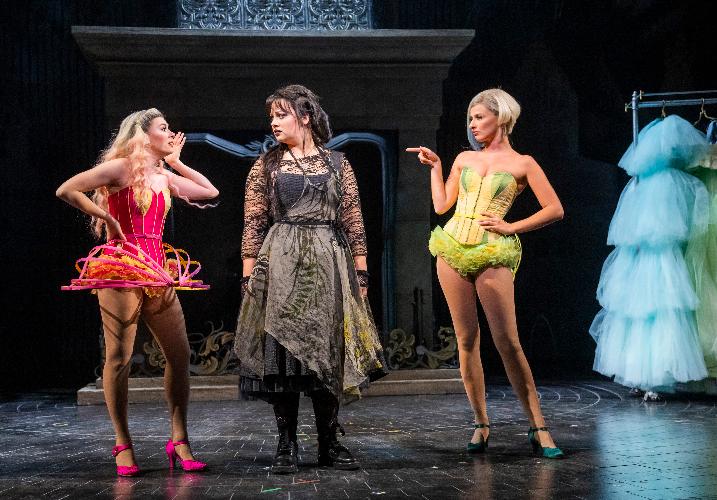The revival of The Magic Flute by Wolfgang Amadeus Mozart (in the production originally staged by David McVicar and revived by Ruth Knight) proves once more why this opera continues to resonate—despite (or perhaps because of) its centuries-old pedigree. With a cast that includes Amitai Pati as Tamino, Lucy Crowe stepping in as Pamina, Huw Montague Rendall as Papageno, Kathryn Lewek as the Queen of the Night, and Soloman Howard as Sarastro, the evening delivers both familiarity and freshness.
From the opening overture onwards, there is a palpable sense of entering a world of enchantment: the stage glows with those deep lights of mystery and transformation, the serpent-monster lurks, the magic flute and bells promise wonders. The balance between the fairy-tale and the philosophical remains the production’s strength. Under the baton of Marie Jacquot making her House debut, the orchestra is alert, spirited and sensitive to Mozart’s endless moods—playful, grave, witty, sincere.
What is especially compelling about this evening is how relevant the work feels in 2025. Yes, the libretto still carries echoes of its time: the ideals of the Enlightenment, the brotherhood of Sarastro’s lodge, the Queen’s fiery vengeance, the trials by fire and water—all of these can risk feeling a little distant. But this production refuses to let the opera settle into a museum-piece. Tamino’s journey from fear to action, Pamina’s evolution from passivity to purpose, Papageno’s simple quest for companionship—all these human stories continue to matter. The staging finds ways to speak to our moment: the magic remains, but the stakes feel genuine. One review aptly notes that although “the opera has long out-lived its genre of Singspiel… its edutainment moralising unavoidably harks back to another age,” it is “hard to imagine the plot making more sense in the 21st century than it does in McVicar’s hands.”
Lucy Crowe’s Pamina glows with a sincerity that sidesteps any risk of her being merely the rescued damsel; her plaintive lines in “Ach, ich fühls” have emotional weight. Amitai Pati’s Tamino is assured and humane, his aria “Dies Bildnis” both elegant and yearning. Kathryn Lewek’s Queen of the Night is powerful – the high Fs are arresting, the drama fierce but never overwrought. Huw Montague Rendall’s Papageno is the delight of the evening: comic timing, warmth, approachable voice, and he coaxes trapped laughter and genuine affection from the audience. Soloman Howard’s Sarastro carries dignified gravitas. The ensemble (the Three Ladies, the Three Boys) and the orchestra rise to meet these principals—no small feat, given the production’s demands.
Of course, there are wrinkles. Some of the gender politics embedded in the libretto give modern spectators pause: the notion of male guidance, the rhetoric of female obedience, the Masonic symbolism—that all carries baggage. As one review acknowledges, lines like “women do little and talk a lot” still provoke gasps. But I argue that precisely because these elements are present, the piece invites reflection. We can watch this opera not only as entertainment but as a mirror: what values has our society inherited, which ones have changed, and which remain quietly influential?
To a younger audience—those new to opera, curious about theatre, or even sceptical about “classical” works—I say: yes, go see this production. Go because you will laugh, you will be moved, you will hear voices and music that deserve attention. And go because it gives you context: this is one of the works that helped shape what we know of opera, of theatre, of story-telling in sound. Watching The Magic Flute is like reading the roots of a great tree before the branches shoot out. It may not glitter like the latest blockbuster musical, but it has depth, beauty, and a kind of root-system worth knowing.
If I am giving a recommendation grade, I offer this production of The Magic Flute a strong “Recommended” for 2025. For families it offers spectacle; for students it offers a gateway; for seasoned theatregoers it offers both comfort and new insight. If you fear it might feel “old,” lean into the fact that it is old—but furthermore it is still alive.
In short: this is an evening that reminds me why this opera still matters. The voices are excellent, the production vivid, the themes still resonate. If you’ve ever wondered whether an 18th-century opera could still speak to us, this is your answer: yes, it can—and it does.
It runs until 3 November.
Review: Oliver Popa

